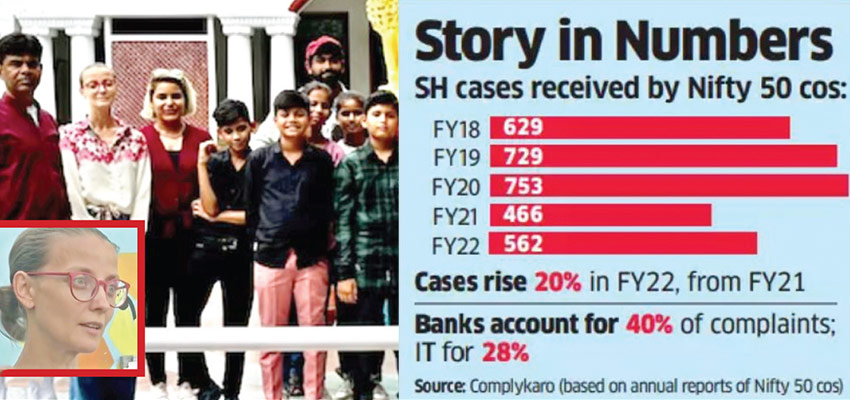
Corporate Citizen claps for Anna, a former journalist from Kazakhstan, and her doctor husband, who have been transforming education for underprivileged children in Jaipur. Anna’s model enables lessfortunate learners to step out of their imperfect worlds.
Anna left her home country and has found a mission in bridging the learning gaps among underprivileged children studying in government schools, enabling them to learn skills and languages that are normally subscribed to, by those studying in elite schools. Anna brings forth changes in the lives of these eager and impoverished children through her NGO, Indian Women Impact. She began her journey during the Covid pandemic and has since built a dedicated team of teachers in giving wings to poor kids and their aspirations. Students learn more than the conventional mathematics and English subjects. They learn French, GK, psychology, coding, robotics, boxing, basketball and several other skills, helping them to build confidence. Anna’s approach brings some parity in a society that has been experiencing pronounced economic, technology and opportunity divides. Other skill sets encourage learning computer technology, history, science, communication skills and public speaking. Students are encouraged to understand gender issues, sex education, mental health and world affairs. The NGO collaborates with external facilitators and outsources learning services. Several students learn French at the Jaipur-based Alliance Francaise, as part of the NGO’s partnership with the French teaching institute. Anna recently mobilised the kids to perform in French at the National School of Drama (NSD), a feat for the children. “My experience was very good because several big theatre artists are also not able to go to NSD. I got the chance. So, this is a very big thing for me,” said a student. Anna provides an opportunity to the slum kids that privileged children gain from their big schools. As Priya said, “We cannot afford expensive courses in expensive schools. But the children who live in the slums, go to government schools and come here to get extra knowledge from Anna ma’am.” Anna’s students are lucky to have had the chance to aspire beyond the limitations of their economic backgrounds. But, is it so difficult to build a wholistic learning approach for all within the existing education system?
Corporate Citizen slaps the rising cases of workplace harassment complaints in India and worldwide, post the Covid pandemic.
The Maharashtra State Commission for Women (MSCW) has reported a 182% rise in workplace harassment complaints and a 68 % increase in sexual harassment cases in Maharashtra over the past six years. Harassment cases rose to 548 in 2022-23, from 194 in 2017-18 (April-March). Sexual harassment cases increased from 22 to 37 (2022-23). The data was obtained via an RTI application filed by Jeetendra Ghadge, which sought information on pending complaints with the MSCW. Another analysis by Mint revealed that there has been a 70% surge in sexual harassment complaints in 2022-23, up from 451 in the previous year across India’s top publicly traded companies. Their sample size of 23 large-cap firms composed of significantly large employers across info tech and banking. Online stalking and in-person harassments were quite rampant, with several employees returning to hybrid work models. A 2022 report by the International Labour Organisation revealed that globally more than one in five people employed (almost 23%), experienced violence, including physical, psychological or sexual harassments. “In 2020, we had close to 300+ cases. A slight addition continued in 2021 with about 400+, and in mid-2022, it was 70% of that number,” said Pallavi Pareek, chief executive officer, Ungender, a consultancy that helps deliver workplace diversity. The Supreme Court’s Vishaka guidelines of 1997 became the stepping stone to the Sexual Harassment of Women at Work place (Prevention, Prohibition, and Redressal) Act of 2013 or (PoSH) Act. HR departments are now tasked with keeping their employees well informed on the PoSH act, via training and test modules. While office employees might be given clearer guidance on the Act, the need to protect everyone at all levels of employment, irrespective of salary brackets, is imperative. The need is to rise above the ‘Act’ on paper and get employees/stakeholders to ‘act’ upon it in the real world. Gender justice is not an option anymore.